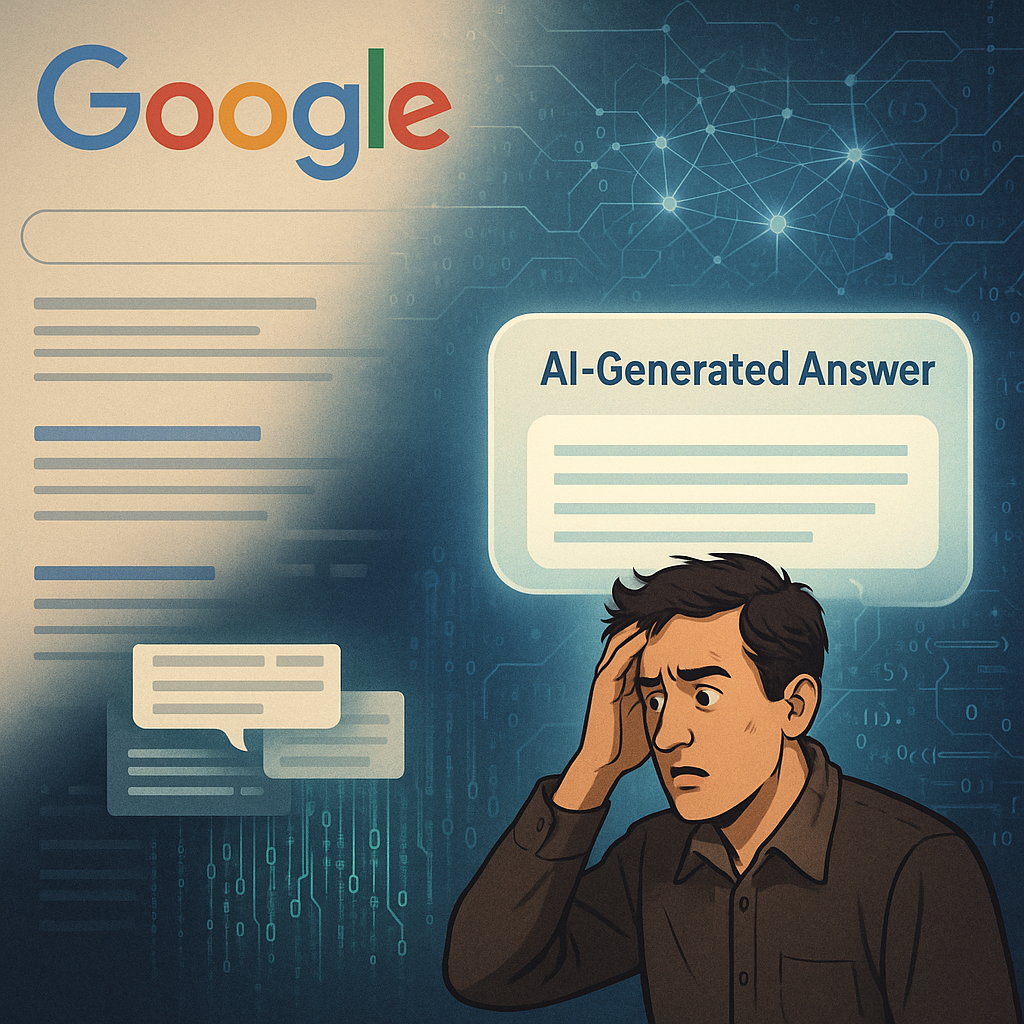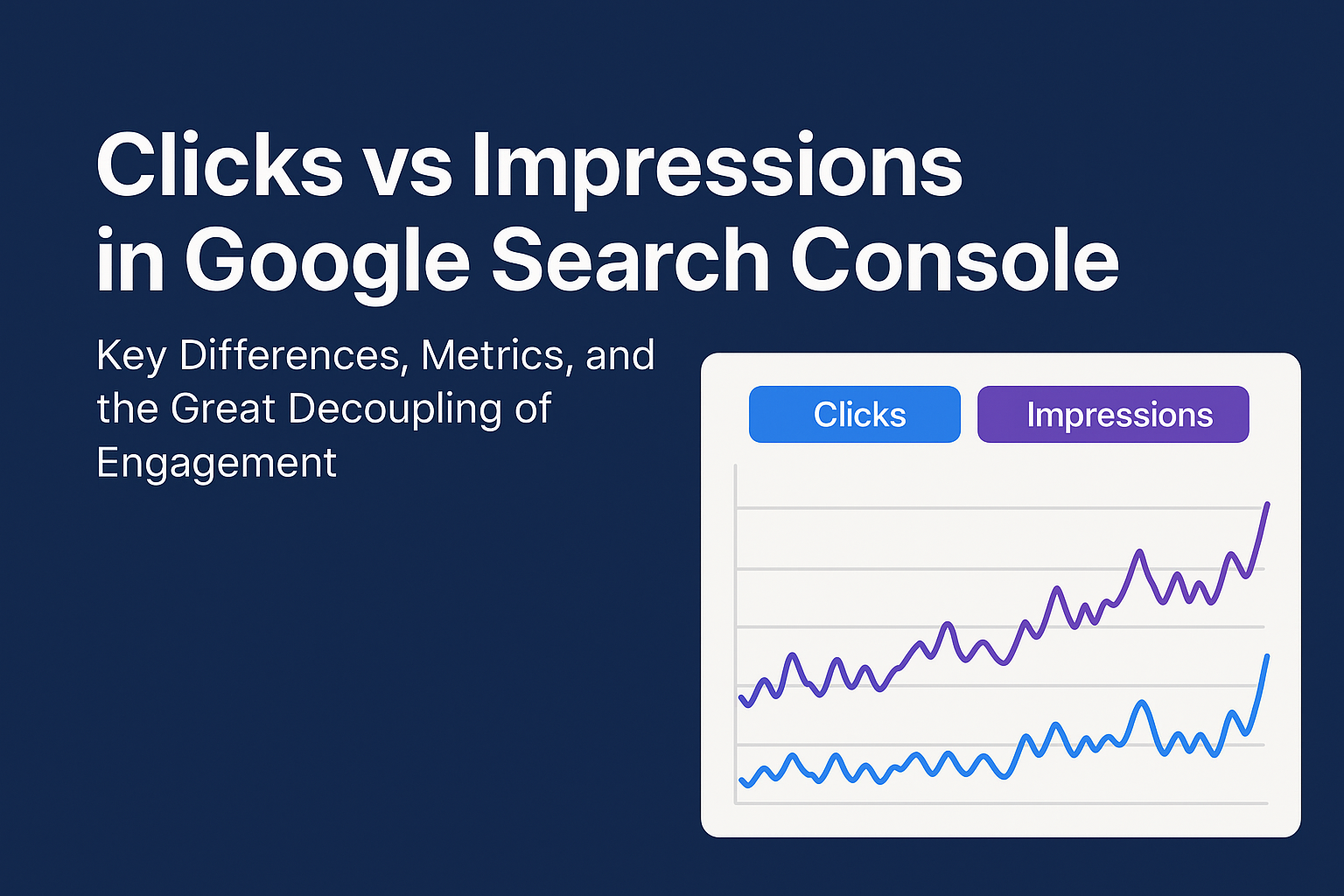Google’s AI Mode: How the World's Largest Ad Platform Is Rewriting the Web's Rules—Again
Once, we searched. Now, we are told.
%20(23).png?width=302&height=302&name=_SD%20web%20assets%202025%20(500%20x%20500%20px)%20(23).png)
4 min read
Marketing
:
Updated on October 16, 2024
SEO as we know it is undergoing a transformation. With Google increasingly using AI to generate answers directly in search results, traditional SEO strategies need a fresh approach. These AI-generated overviews are reshaping the search experience, often appearing above organic results and pulling from multiple sources to create a concise response.
The shift is clear: if your content isn’t optimized for AI-driven results, you risk losing visibility. But don’t worry, SEO is far from dead. It’s evolving, and with a few key adjustments, you can ensure your content still has a place in this new landscape.
 When you type a question into Google, it uses AI (artificial intelligence) to quickly understand what you’re asking and give you the best possible answer at the top of the page. Here’s how that process works:
When you type a question into Google, it uses AI (artificial intelligence) to quickly understand what you’re asking and give you the best possible answer at the top of the page. Here’s how that process works:
First, Google’s AI tries to figure out exactly what you’re asking. It looks beyond the words to understand the meaning behind your question—whether you want a quick fact, a step-by-step guide, or product recommendations.
Once the AI understands your question, it pulls information from many different websites. It doesn’t just take one answer but combines bits of info from different places to make sure the answer is complete and easy to understand.
Before showing you the answer, Google double-checks that the information is accurate. The AI compares it to other trusted sources and makes sure it follows Google’s standards for quality and truthfulness.
Finally, the AI presents the answer at the top of the search results, often with links to the websites where it found the information. This way, you get the best, most accurate answer right away, without needing to click through lots of different pages.
This process is designed to save you time by giving you exactly what you need, quickly and efficiently, right on the search page.
It’s important to note that 52% of the sources referenced in AI overviews are already ranking in the top 10 of traditional search results. This reinforces the continued importance of traditional SEO techniques, such as ranking well in organic search, to ensure your content is considered for AI-generated answers.
While AI-generated answers are becoming more common, SEO is far from obsolete. Instead, it’s evolving. Traditional practices—such as keyword optimization, backlinks, and user experience—still play a critical role, but the focus must shift slightly. Here’s how:
Although AI-generated answers focus more on understanding user intent than matching keywords exactly, keywords still matter. Google’s AI models rely on well-optimized content to understand and respond to search queries accurately.
Protip: Continue to optimize your content with relevant keywords. Use them naturally in headers, meta tags, and throughout the body of the text. While keyword stuffing is no longer effective, ensuring your content aligns with key search terms is essential for visibility.
Google’s AI prioritizes trusted and authoritative sources, and high-quality backlinks remain a significant factor in determining a page’s credibility. Backlinks serve as a strong indicator that your content is reliable and valuable.
Protip: Focus on building quality backlinks from reputable websites. Guest posts, partnerships, and PR efforts are all excellent ways to increase your content’s visibility. And considering that AI overviews reference an average of five sources per query, having your content featured across multiple trusted domains can increase your chances of being included in AI-generated answers.
While optimizing for AI, don’t overlook the user experience. Google’s AI is more likely to prioritize content from websites that load quickly, are mobile-friendly, and offer smooth navigation.
Protip: Audit your website for any UX issues. Ensure that your site loads quickly, is easy to navigate, and functions well on mobile devices. These factors continue to influence whether your content will appear in top search results and be used in AI-generated answers.
In addition to refining traditional SEO strategies, content creators must now think about how to optimize for AI models. AI-generated answers prioritize content that is clear, concise, and structured in a way that makes it easy to synthesize into a response.
Google’s AI doesn’t rely on exact keyword matches; it prioritizes natural language and context. Your content should be written in a way that reflects how people ask questions and search for information.
Protip: Write clearly and concisely. Use conversational language and keep sentences simple. Focus on providing direct answers to common questions.
Schema markup is an essential tool for helping Google’s AI understand the structure and context of your content. Implementing the right schema can provide the AI with the necessary information to interpret your content accurately.
Protip: Implement FAQ, How-to, and Article schema markup on your important pages. This extra layer of context makes it easier for AI to identify relevant content and helps improve your chances of being featured in AI-generated search results.
Google’s AI models are trained to process natural language. Structuring your content in a way that aligns with how AI reads and interprets information increases your chances of appearing in search results.
Protip: Break complex topics into smaller, digestible sections. Use headers, bullet points, and lists to make your content easier for AI to parse.
As Google continues to develop its AI-generated answers, the role of SEO is evolving—but it's far from disappearing. While traditional SEO practices like keyword optimization, backlink building, schema markup, and user experience remain important, it’s time to rethink how you position your content.
In this new landscape, SEO is no longer just about driving clicks from search results. Instead, brand visibility and content co-occurrence are becoming crucial. Google’s AI draws from multiple sources to synthesize answers, and getting your content mentioned across relevant sites is key to being part of those AI-generated answers.
To succeed, focus on creating high-quality, relevant content that consistently ties your brand to the topics and keywords AI models pull from. Whether through content creation, PR, or strategic partnerships, making your brand a trusted resource in your industry is how you'll thrive in the world of AI-driven search.
SEO isn’t disappearing—it’s transforming. Those who adapt by prioritizing visibility, brand mentions, and co-occurrences will find themselves at the forefront of this new AI-powered search ecosystem.

Once, we searched. Now, we are told.

Can Deep Pages Enhance Your Google Visibility? 5 Key Insights from AI Overview Research Search engines are evolving. Recent findings from the...

In May 2025, BrightEdge published findings that underscore a pivotal development in digital marketing: although Google search impressions grew by 49%...